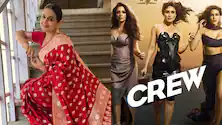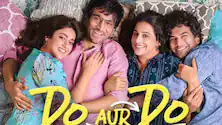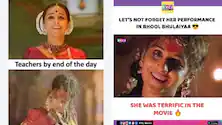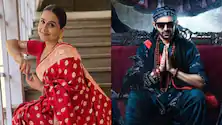EXCLUSIVE INTERVIEW! Vidya Balan: Playing Powerful Characters Has Always Healed Something In Me
'Don't be scared to be yourself,' Vidya Balan tells us when we ask her about a piece of advice that she would like to give her younger self. Her journey from being a 'Sarat Chandra Chattopadhyay' heroine in Parineeta to essaying a woman grappling with morality in her last release Jalsa has been a remarkable one! She considers the tiger to be her spirit animal because like them, she's always hungry and on the prowl for interesting characters.
A female superstar in a true sense for her strong voice both on and off screen, Vidya Balan has sculpted her way into showbiz in an inspiring way. She's the 'shero' who has learnt to volley both her work and personal battles and set an example for people who dare to dream big.

In an exclusive candid tête-à-tête with Filmibeat, Vidya Balan talks about the impact of playing powerful characters in her life, why she is thrilled about Gangubai Kathiawadi's box office success, her 'No Photoshop' policy for her photoshoots and more.


'I Am At The Centre Of My Universe'
Q. When it comes to your performance as Maya Menon in Jalsa, the scenes which stood out for me the most were the ones where your character gets a flashback of the accident and loses her grip. If I have to describe those sequences, I would say, 'I didn't see those scenes; instead I felt them,' when I was watching them. Was it difficult for you to internalise those feelings and depict them on screen?
A. Firstly, thank you so much for saying that you felt those scenes. That's the ultimate compliment. I think, it was difficult to internalise those scenes because you saw those flashes, right? That's a visual technique which was used by the director and the editor. But, I obviously didn't have that while performing. I knew the script really well and Suresh (Suresh Triveni) would give me emotional cues. He had created pieces of music and themes for the different emotions that Maya goes through in the film; be it guilt, fear or panic.
For example, he would tell me that in this scene, when you suddenly get that flash of an accident, it's that one incident that has turned your life upside down. You are almost still in a denial of the fact that it has happened but you can't escape that. It just invades your mind sometimes. So, it's a jolt every single time when it happens. This along with the musical cues would help me to get into that zone.
Q. In the last few years, there has been a lot of discussion around women spearheading films. But, a quick look back at Indian cinema shows that we have had actresses like Nargis, Nutan, Meena Kumari, Smita Patil and others playing women of substance on screen. Things did take a different turn in the late 80s and 90s where women hardly got any meaty role. But, you brought the focus back on them when you delivered two consecutive hits (The Dirty Picture and Kahaani). Over the years, you have been the 'hero' in most of your films. Is it empowering for you both as an actor and a person, when you play these powerful characters on screen?
A. Yes, I think so. I choose characters instinctively, but I think they always heal some part of me and empower me; not just as a woman but also as an individual. It feels great to be taking the centrestage because I have said this in jest before, but I mean it that I am at the centre of my universe and I am the most important person to me in my life. That's something that we as women have always grappled with, that is putting ourselves first. We always feel more comfortable putting the men in our lives first whether they are fathers, brothers, husbands, sons or boyfriends.
But, I realized that only when you put yourself first, you can love and accept anyone else. Only then, you can be completely present in any other relationship. And therefore, because of this understanding, I was able to assume centerstage in the films I did, unapologetically and also because I got to play characters that were at the centre of the story. They were literally the spinal cord of the story that I was telling, and it is definitely liberating and joyous. Along the process, I have felt empowered. It has always healed something in me.
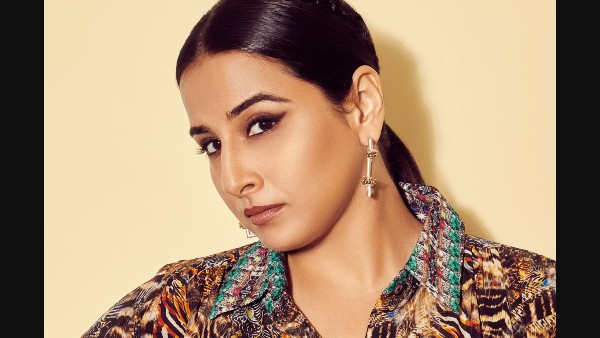
'I Like To Be Present In The Moment While Performing My Scenes'
Q. When you play different characters on screen, I am sure there must be a constant change in your thought process as well. Even though these are fictional characters, you have to tap inside yourself and breath life into what's written on paper. How have you evolved as a person ever since you first saw yourself on screen?
A. I am not a trained actor, so I didn't have a process. I have literally learnt on my job. Previously, I had read that people tune into or turn towards their emotional memory bank as a trigger for certain scenes or to feel a certain emotion. I used to try doing all that. But over time, today, I think it's very subconscious because no two situations are the same; however similar they may seem to be. So, I like the reaction to be organic.
I like to be present in the moment that invariably when there is empathy, I think you do feel. For example, when I feel empathy for a character that I am playing; I feel for what that person goes through and that itself can move me. I don't have to know how Vidya must have felt. Sometimes, there are personal references that do cross my mind but I don't consciously use them. I think it happens very subconsciously now.

'People Weren't Used To Seeing Female Heroes That Much; They Are Now Slowly Warming Up To That'
Q. In one of his recent interviews, Sanjay Leela Bhansali slammed the perception that it takes a male lead to pull off a commercial hit. The box office success of Gangubai Kathiawadi is a testimony to that. According to him, it's just a handful of people who have unnecessarily muddled the mind and imposed this belief in the industry. In fact, these days, we see that the audience is more interested about the characters and not in the gender of the actor who is playing it. This isn't restricted to films; it has entered the web space as well (Madhuri Dixit in The Fame Game, Sushmita Sen in Aarya, Shefali Shah in Human, Raveena Tandon in Aranyak). Do you feel the filmmakers/industry people too need to slowly warm up and not be stiffed when their projects revolve around women characters?
A. Well, I have only been a part of the so called women-centric films for the past 14 years and have seen these films doing extremely well. Films of my peers have also done very well. So, there's definitely a change in that perception. It has taken time and it's still taking time. But with every subsequent success, I think people get more embolden to make unconventional decisions and to invest in stories led by women which are larger in scale.
Gangubai Kathiawadi is a great example of that. I do think that change is already underway and it's not just one Gangubai Kathiawadi. That film is a great example because it brought back people into the theatres. I am so thrilled about the fact that it was a female-led film which brought people back into cinema halls after two years of the pandemic. I am saying this has been happening for a while now. But the scale of this is huge; it's much bigger.
I think people weren't used to seeing female heroes that much. But now, they are slowly warming up to that. There's so much heroism in Gangubai Kathiawadi. Look at what has happened in the past ten years. Of course, we had Nargis, Meena Kumari, Rekha, Sridevi and others in the past. But, look at the past ten years and you will see how female-led films have done well. The Dirty Picture is the first film which did that. I do think that this change has been underway for a while. It's becoming stronger now.
There is no one type of female hero while you have a type of male hero. There's no prototype of a woman that all of us aspire to be anymore. We have come to the realisation that women are individual with their own individual story, struggles and triumphs. That allows for varied women stories to be told. Therefore, you realise that every woman is a hero in her own right in each of all these stories that you mentioned and more. Whereas unfortunately, there's only one type of male hero. Women have better opportunities because you also realise that extraordinary emerges from ordinary so we are also playing ordinary people. Everyone has the opportunity to be extraordinary in their own space.
I am not just talking about extraordinary situations or extraordinary people. I have had the opportunity of playing someone like Vidya Vincent in Sherni as well. So today, there's not one type of female hero and that's what makes female-driven content more exciting and potent.

'I Am Dying To Do An Out-And-Out Comedy'
Q. Vidya, over the years, people have started associating your name with films rich in content. Does that sense of reliability and belief play at the back of your mind when you green-light your projects?
A. No, not at all. I feel very grateful that people feel like that. I use that as an encouragement and motivation to keep doing my best. But, I purely respond to stories instinctively. If something challenges or excites me, I will do it and if it doesn't then I won't. It's as simple as that because I have to feel through the process of doing it. I would never know what everybody likes and dislikes, right? So, I can only go by what I like. That's what I do.
Q. While you have played so many diverse characters in your journey so far, it's my wish to see you doing an out-and-out comedy. In fact, some of your co-stars say that you have a wicked sense of humour. We did get to see a bit of that light-hearted side of Vidya in Tumhari Sulu...
A. (laughs) I am dying to do an out-and-out comedy. Someone should write it. I would love to do a comedy. It's a genre that makes you laugh and I think, laughter just makes life so beautiful. It lightens your mood and gives you perspective. When you are in a bad mood, if you try smiling or even fake a laugh, you will actually feel better.

'I Am Cheating Myself If I Am Getting Rid Of All The Lines On My Face Or Neck Or Making My Body Smaller'
Q. In today's times, it's also assumed that celebrities need to be at their A-game when it comes to social media. Their timeline has to be happy, glossy and filled with glamorous pictures. This culture isn't just restricted to celebrities and has trickled into the general public sphere as well. Last year, you took a strong stand against unrealistic beauty standards and issued rules not to use photoshop or retouch your pictures in your photoshoots. What made you take up that decision?
A. I just felt like such a cheat. Forget cheating anyone else, I am cheating myself if I am getting rid of all the lines on my face or neck or making my body smaller because that's not who I am.
For a role, you could still do that because all these are tools for you to look convincing as a certain character. In my younger portions in Shakuntala Devi, the makers got rid of the lines under my eyes. But for the portion where I was playing my own age, they didn't do that. In films, it's still okay. But in photoshoots and ad films where I am being myself, I don't see any reason why I should be someone else.




 Click it and Unblock the Notifications
Click it and Unblock the Notifications








